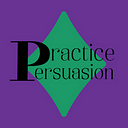5 The Most Common Rhetorical Mistakes
Public speaking is a powerful tool for inspiring and influencing others.
However, even the speeches with the purest intentions can fall apart if some common mistakes are made.
In the realm of rhetoric, the art of persuasive speaking, these mistakes can hinder your abillity to connect with your audience and effectively showing your message.
Here we expose 5 really common public speaking mistakes and provide valuable tips on how to avoid them.
1. Failing to Establish Ethos
Ethos more known as a credibillity and trustworthiness of the speaker.
Not showing it at the beginning can lead to scepticism and disinterest from your audience.
To avoid this, make sure you introduce yourself and highlight any relevant references about you or experiences related to your topic.
Demonstrating your expertise will pour confidence and capture your audience’s attetion.
2. Ignoring Pathos
Pathos more known as emotional appeal to the audience.
This is so far the most important part of engaging and connecting with your audience on a deeper level.
The emotions hidden in speech have a lasting impact which is crucial for remembering the speech itself.
You can avoid this by storytelling, personal anecdotes, or metaphors.
Remember speak through your heart that’s where it comes from ❤
3. Lack of Logos
We’ve already had Ethos which stands for credibility,
We’ve already had Pathos which stands for connection with audience.
Right now the foundament of it all, THE LOGIC.
Speech must be grounded in logic and reasoning.
Providing sufficient evidence and logical arguments can increase your credibility and give your message more impact.
To help you achieve it , you have to support your claims with relevant facts, statistics and examples.
A well-reasoned argument will not only persuade your audience but also demonstrate your knowledge and expertise.
4. Using Jargon
Effective communication requires speaking in a language that everyone from your audience can understand.
The most important thing is to know your audience.
For example sometimes jargon might be useful when I’ll talk to a bunch of teenagers.
Sometimes technical language could be useful when I’ll speak to a group of technician who have almost the same knowledge as me.
So in summary if your audience is not a total mixup don’t use jargon.
Use concise language that is accessible to all of your hearers.
And remember that simplicity and clarity will rise engagement and ensure that your message is understood by all.
5. Lack of Rehearsal
Writing the speech itself (at least in my opinion) is easier than delivering it on the stage.
Delivery is a crucial component of public speaking, without practice you are a step in front of a disaster.
Without proper practice, you may stumble over words, lack confidence, and deliver a below standards presentation.
To avoid this, rehearse your speech multiple times.
Pay attention to your pacing, intonation, and gestures, as they can greatly enhance your delivery.
At the same time, it will boost your confidence, allowing you to send your message with more conviction.
Summary
Public speaking is a skill that can be polished through awareness and practice.
Help yourself by avoiding these common mistakes in rhetoric.
I hope you’ve enjoyed it and learned something ❤
Have a good day !
PS. Here you can learn more from me Instagram
